Uncomfortable Wonders
Questions about our views on nature

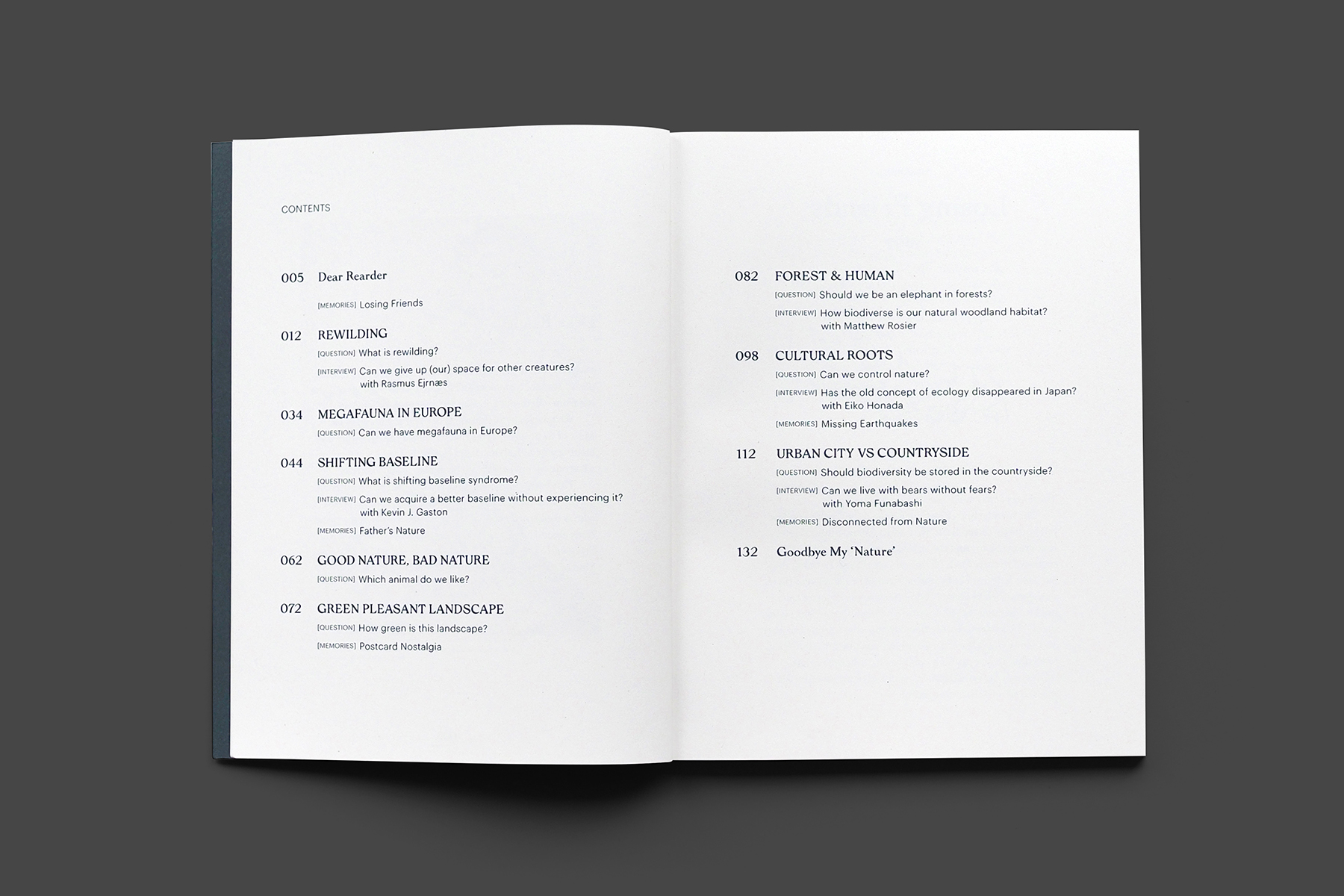
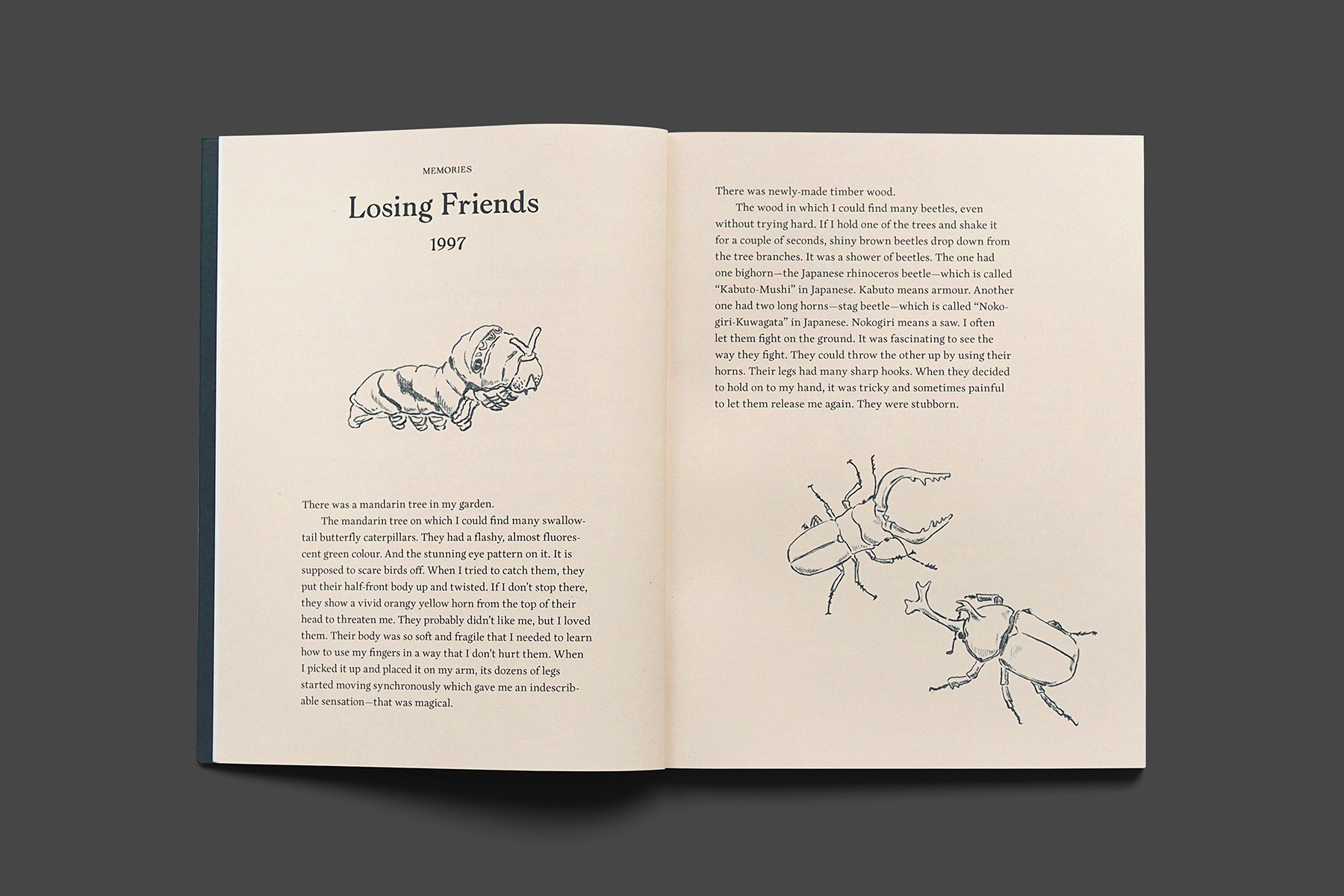

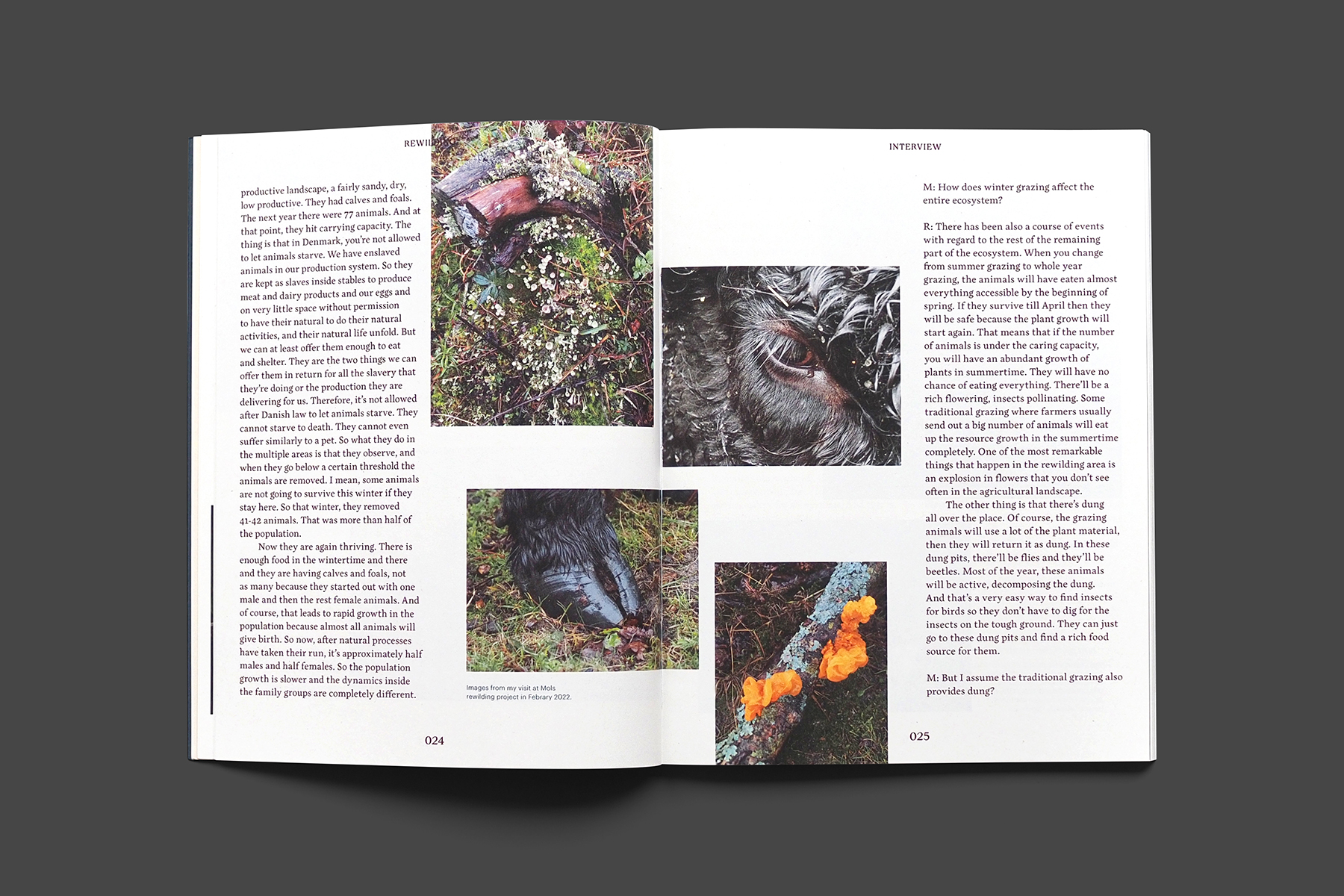
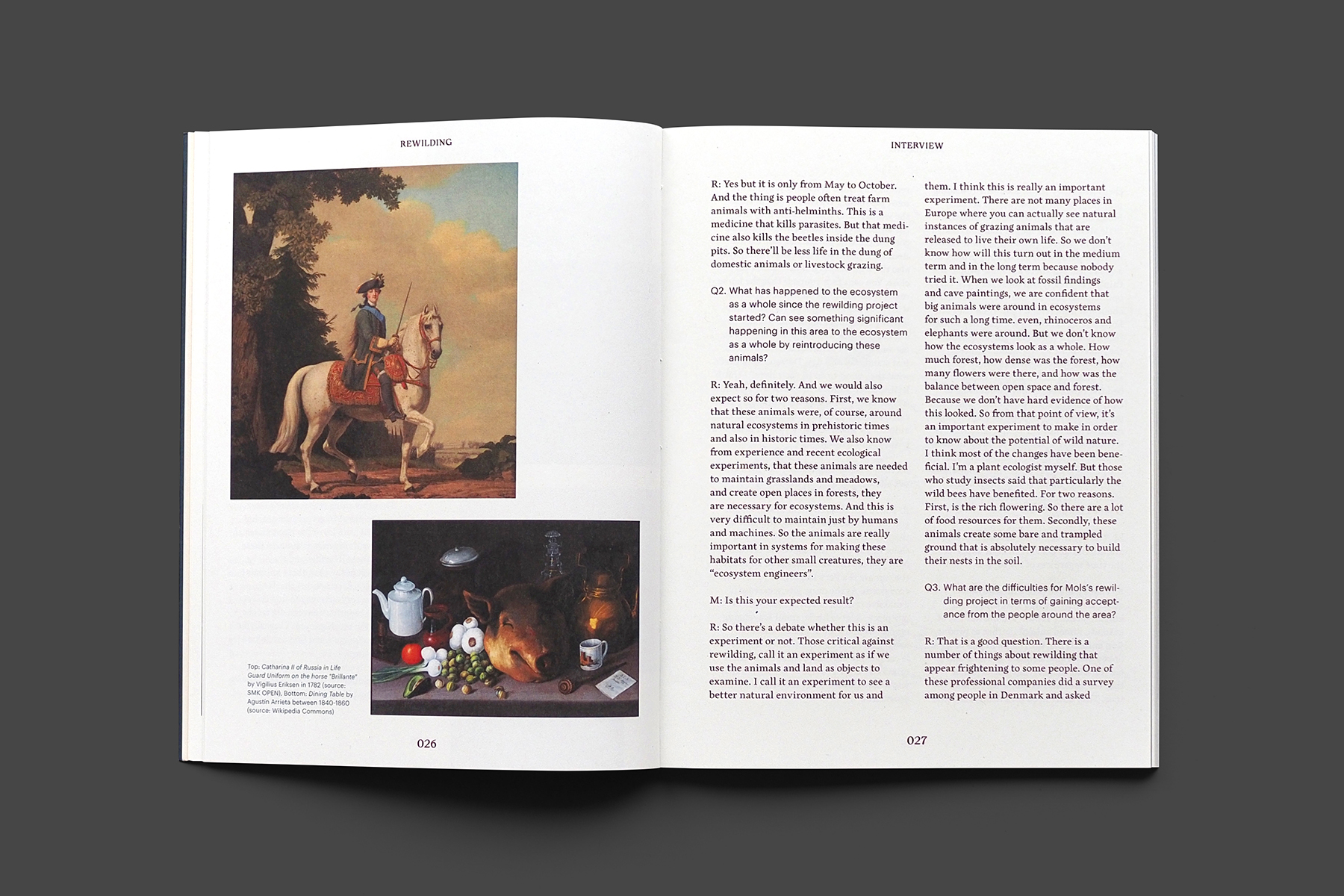


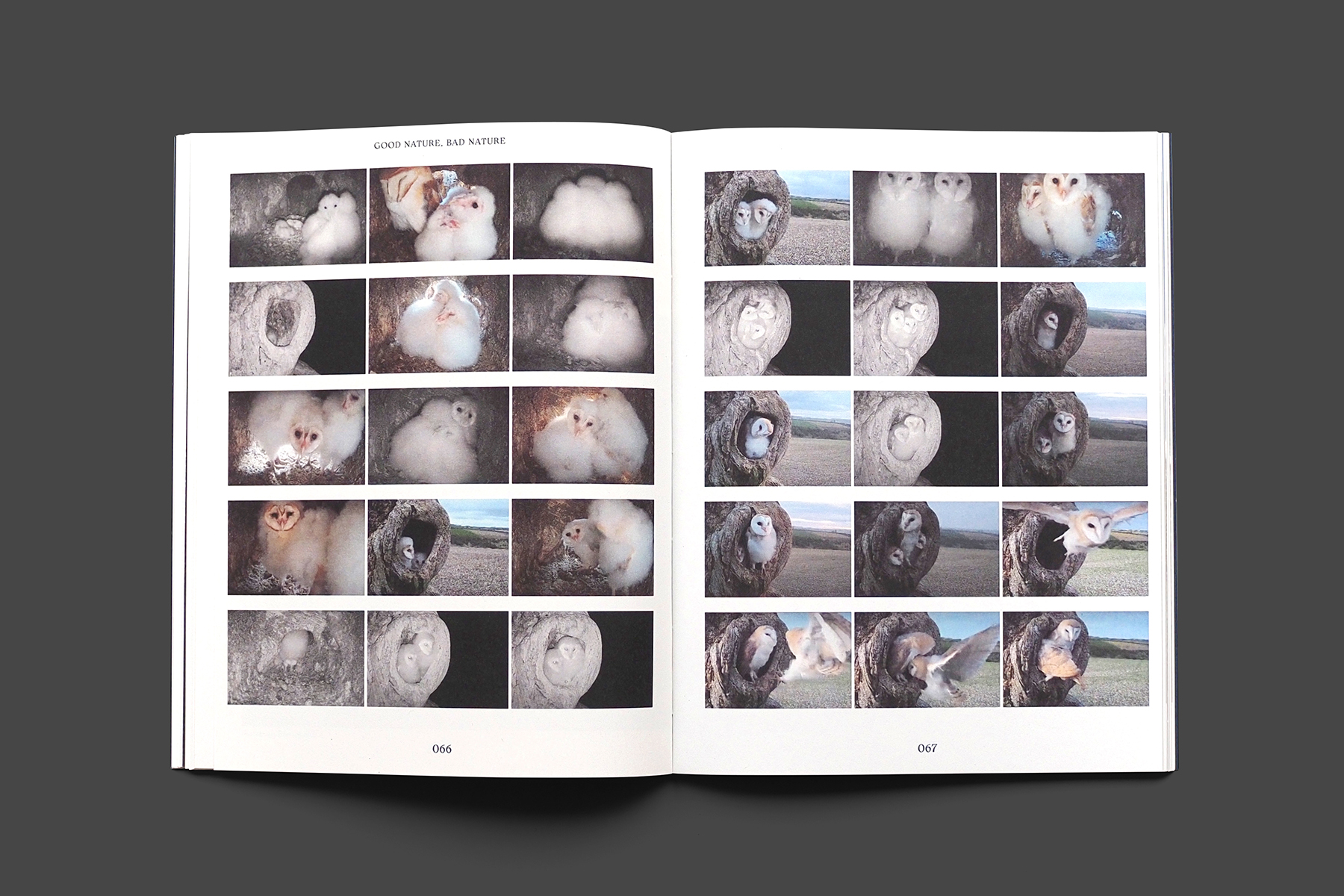
This work is a book called “Uncomfortable Wonders: Questions about Our Views on Nature”, which is about the different perspectives on nature that people have in Japan, the UK and Denmark, where I have lived. I worked on it as my final project for my Master's degree at the Royal Danish Academy of Fine Arts. I did all the research, interviews and design process myself. The cover illustration is made by Takumi Sugiyama.
The starting point for this work was the Rewilding initiative that has begun to be introduced in Europe and the USA. I knew about the successful reintroduction of wolves to Yellowstone National Park in the USA a long time ago, which led to the restoration of the natural ecosystem. During the two years of my MA study, I learnt that rewilding initiatives were taking place in many parts of Europe. It grew into one of my great interests. Therefore, I visited a rewilding project in Denmark to see the effort and impact there, as well as the opposition from the neighbours. I was struck by the different perspectives people have on nature when I learnt that the most vocal opponents of rewilding are actually horse enthusiasts – who argue that horses should not starve in their natural environment.
The starting point for this work was the Rewilding initiative that has begun to be introduced in Europe and the USA. I knew about the successful reintroduction of wolves to Yellowstone National Park in the USA a long time ago, which led to the restoration of the natural ecosystem. During the two years of my MA study, I learnt that rewilding initiatives were taking place in many parts of Europe. It grew into one of my great interests. Therefore, I visited a rewilding project in Denmark to see the effort and impact there, as well as the opposition from the neighbours. I was struck by the different perspectives people have on nature when I learnt that the most vocal opponents of rewilding are actually horse enthusiasts – who argue that horses should not starve in their natural environment.
この作品づくりのきっかけは欧米で導入され始めた 「Rewilding(再野生化)」 という取り組み。ずいぶん前にアメリカ合衆国のイエローストーン国立公園に狼が再導入されたことにより、自然の生態系が回復するという成功例については知っていましたが、ヨーロッパの多くの地域で、再野生化の取り組みが行われていることを大学院在学中に知ります。そこで、デンマークで行われている再野生化プロジェクトを訪ね、ここで行われている取り組みや、周辺住民の反対意見に触れました。再野生化に反対派の中で最も声をあげている人たちが、実は馬愛好家の人々で、「馬たちが自然環境の中で飢餓に苦しむべきではない」 と主張していると知り、人々が自然に対して持っている視点の違いに大きな衝撃を受けました。
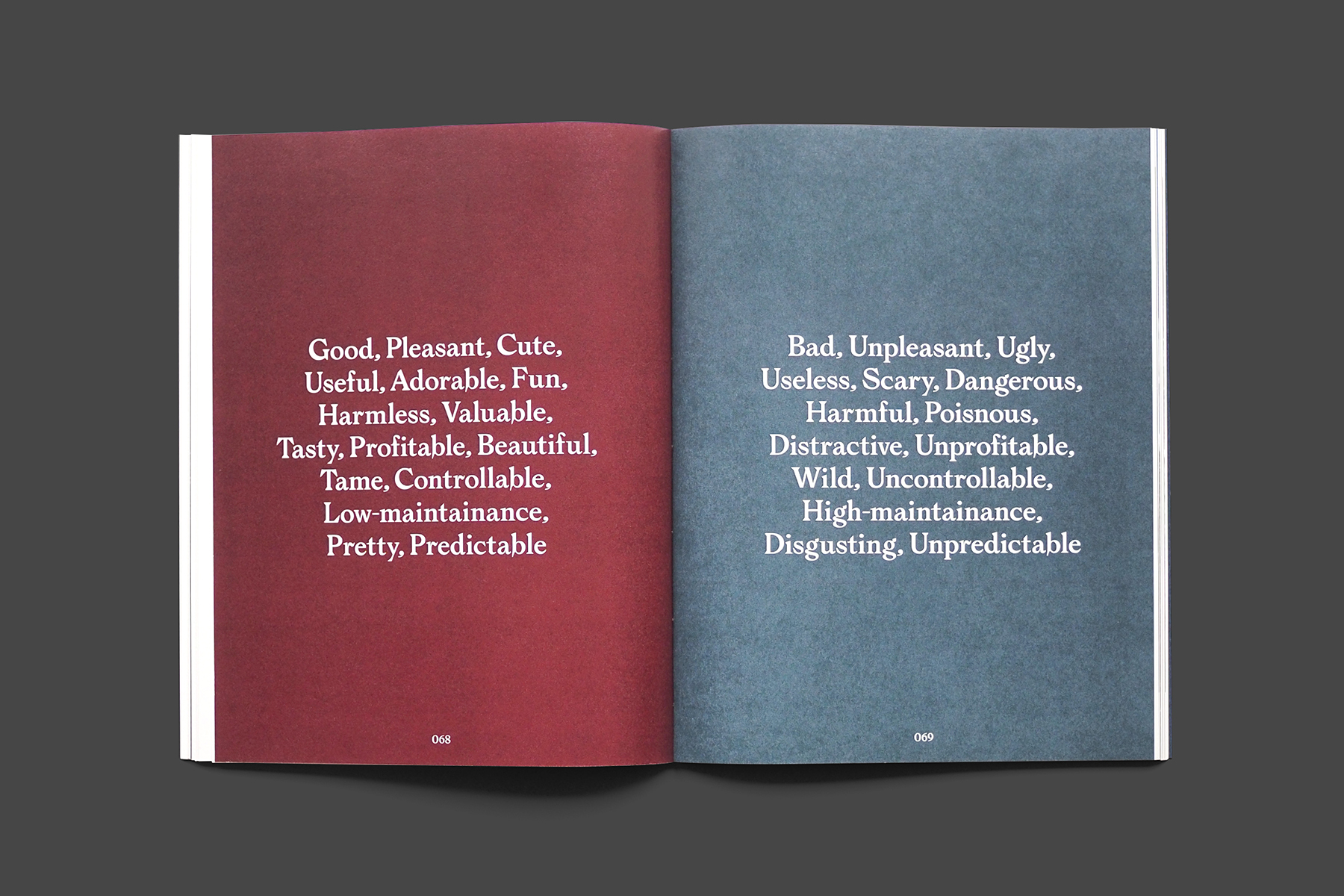
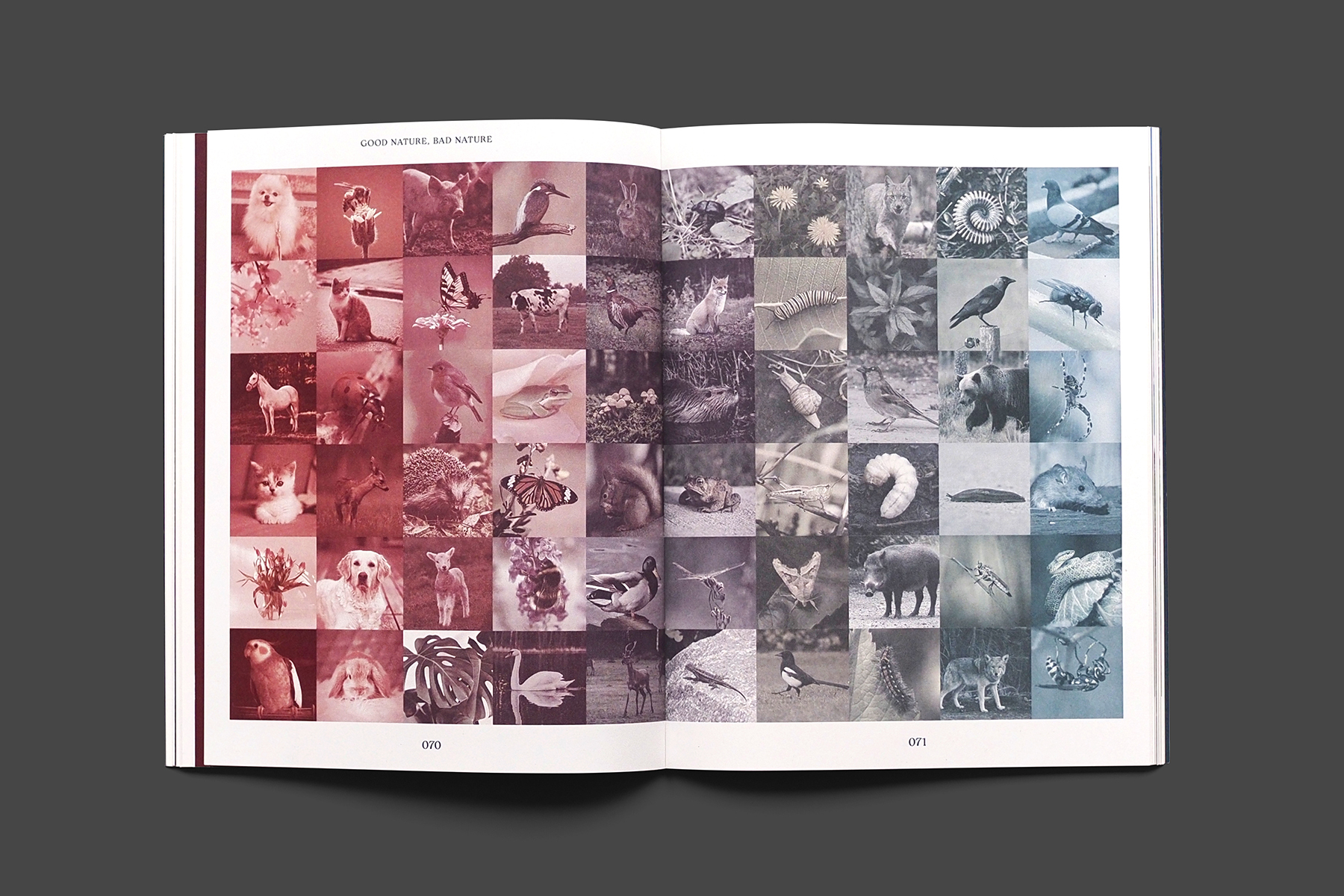


The differences between the Shinto and Buddhist views of nature that I acquired growing up in Japan and the views of nature that I encountered while living in the UK and Denmark, as well as the differences in the various views of nature held by people living in rural and urban areas, were also important points of focus in the making of this book. The 'Shifting Baseline Syndrome' that I learnt about in the course of my research shook my image of optimal nature to its core and led me to question it.
Shifting Baseline Syndrome refers to the fact that our standards are changing. Because what we take as standards is limited to the period between our birth and upbringing (or what we were told by our parents' generation), and we cannot take anything prior to that as a standard. Especially when talking about the natural environment, people and even experts often do not know where to place the reference point for 'how things should be', as the natural environment has continued to deteriorate over the last decades.
I conducted as much research and interviews as I could, mainly in Denmark and Japan, where I am based, asking questions such as: 'What is the ideal state of nature in a world where the natural environment has been destroyed to this extent? (while acknowledging the premise that each place, region and culture has its own natural state)
Shifting Baseline Syndrome refers to the fact that our standards are changing. Because what we take as standards is limited to the period between our birth and upbringing (or what we were told by our parents' generation), and we cannot take anything prior to that as a standard. Especially when talking about the natural environment, people and even experts often do not know where to place the reference point for 'how things should be', as the natural environment has continued to deteriorate over the last decades.
I conducted as much research and interviews as I could, mainly in Denmark and Japan, where I am based, asking questions such as: 'What is the ideal state of nature in a world where the natural environment has been destroyed to this extent? (while acknowledging the premise that each place, region and culture has its own natural state)
シフティング・ベースライン症候群は、私たちが基準としてとらえているものが、私たちの生まれてから育つまでの間(もしくは親世代から聞いたこと)に限定されており、それよりも前の状態を基準として捉えられないことから、基準が常に変化していることを指します。特に自然環境を語る際には、この数十年の間に自然環境が悪化し続けてしまっているため、「こうあるべき」 とする基準点をどこに置くべきなのかが人々や専門家の間ですらわかっていないことが多くあります。
「自然環境がここまで破壊されてしまった世界で目指すべき自然の姿とは一体どのような状態なのか」 「行き過ぎた資本主義社会の中で、他の生き物にスペースを譲ることは可能なのだろうか」 などの問いを立てながら、私がいるデンマークと日本を中心に(もちろんその場所、地域、文化ごとにその自然の姿は違うという前提のもとで)、できる限りのリサーチ、インタビューを行いました。
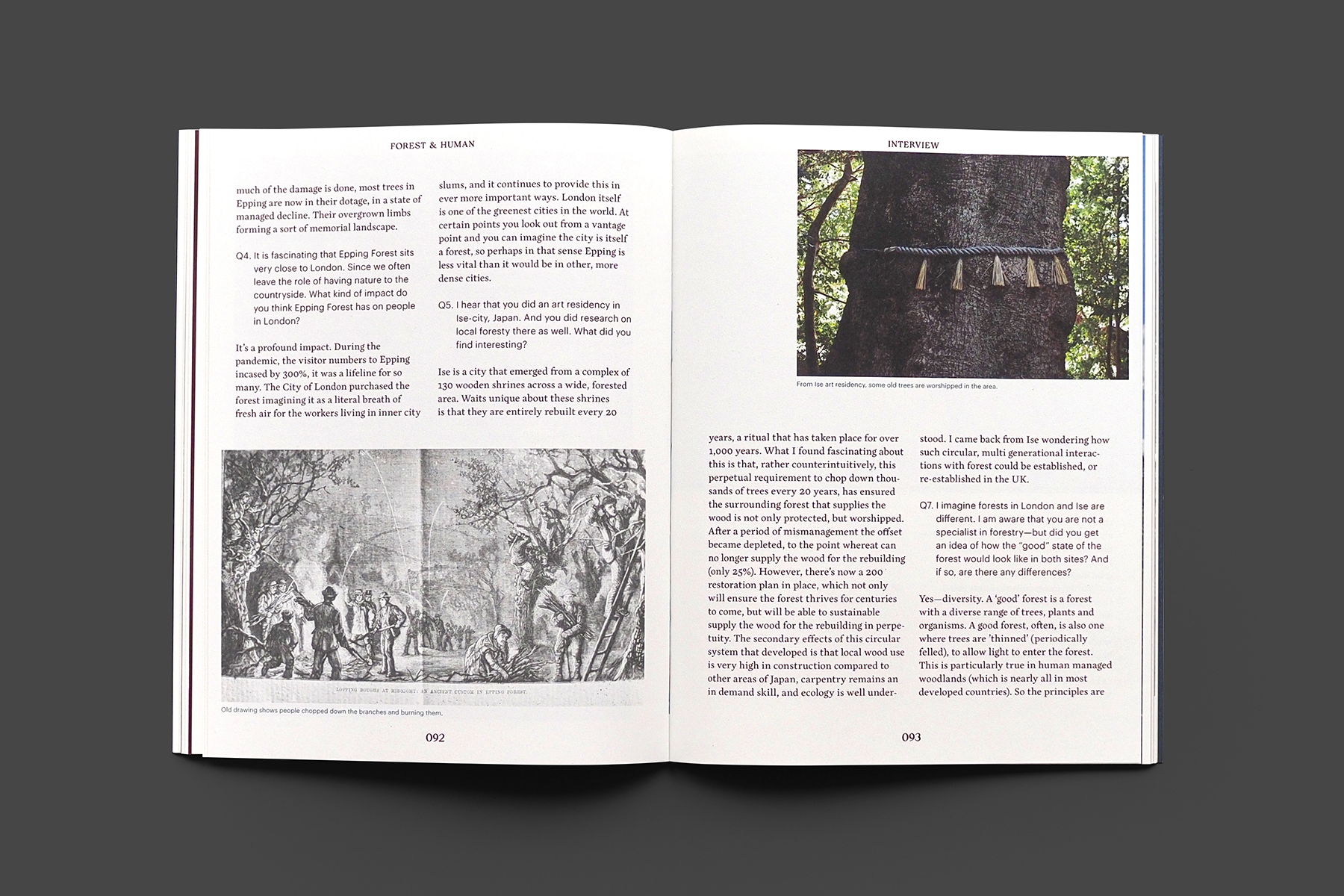

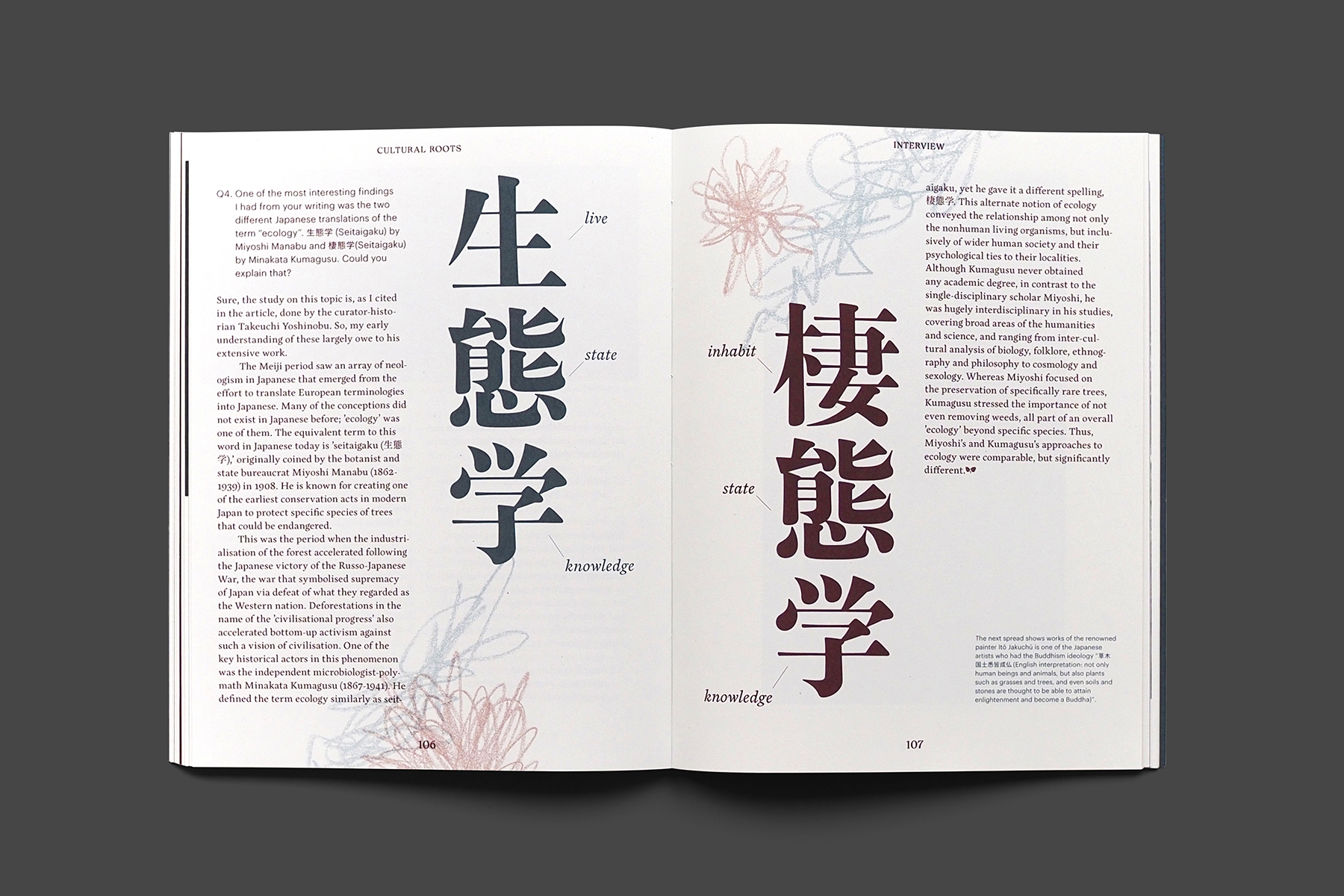
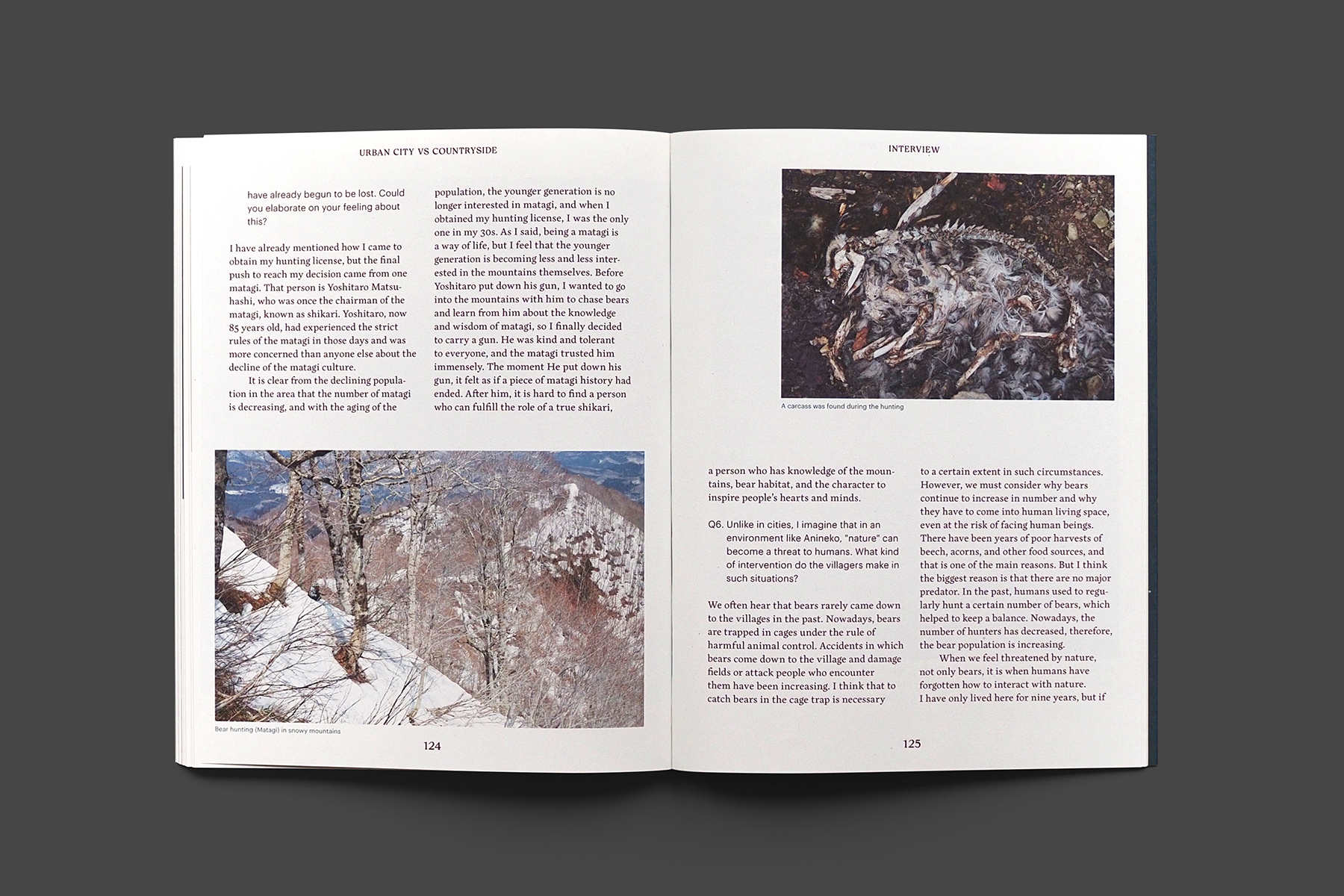
Many people supported me in making this work. The people at Knepp, who are pioneers of rewilding in the UK, and those who agreed to be interviewed (more on this below). Alexandra Falagara, Line-gry Hørup, my postgraduate supervisor, whose attitude to design influenced me greatly.
I was fully aware that the theme was incredibly big and complex, so I did not summarise it as a general conclusion but only put it into a book as a collection of my personal experiences, memories and research into the work.
It was printed and bound with limited copies, but you can download a PDF version here.
︎︎︎Uncomfortable Wonders (PDF)
[The interviewees for the book]
A professor at Aarhus University in Denmark. He specialises in Biodiversity and ecology. He was in charge of the rewilding project in Mols Bjerge when I visited.
A professor at Exeter University in England. He specialises in the area of Biodiversity and writes papers about Shifting Baseline Syndrome.
An artist based in London. His theme often comes from forest and natural environment. He created a video art works about Japanese forestry and Shinto-ism.
An assistant professor at Aarhus University in Denmark. She specialises in the intellectual history of modern Japan and the environmental humanities.
A photographer. He moved to a remote village called Ani-nekko in Akita, Japan where known for its traditional bear-hunting culture. His work captures the local culture and human relation with nature.
I was fully aware that the theme was incredibly big and complex, so I did not summarise it as a general conclusion but only put it into a book as a collection of my personal experiences, memories and research into the work.
It was printed and bound with limited copies, but you can download a PDF version here.
︎︎︎Uncomfortable Wonders (PDF)
[The interviewees for the book]
A professor at Aarhus University in Denmark. He specialises in Biodiversity and ecology. He was in charge of the rewilding project in Mols Bjerge when I visited.
A professor at Exeter University in England. He specialises in the area of Biodiversity and writes papers about Shifting Baseline Syndrome.
An artist based in London. His theme often comes from forest and natural environment. He created a video art works about Japanese forestry and Shinto-ism.
An assistant professor at Aarhus University in Denmark. She specialises in the intellectual history of modern Japan and the environmental humanities.
A photographer. He moved to a remote village called Ani-nekko in Akita, Japan where known for its traditional bear-hunting culture. His work captures the local culture and human relation with nature.
テーマがとても大きく、複雑であることは十分に理解していたので、一般的な結論としてまとめるのではなく、あくまで私個人の体験、記憶、研究の集合体としての本として作品に落とし込みました。少部数限定での印刷・製本でしたが、こちらからPDF版(英語)をダウンロードできます。
︎︎︎Uncomfortable Wonders (PDF)
[本にインタビューを掲載した方々]
デンマーク、オーフス大学教授。デンマーク、モルス国立公園で行われている再野生化プロジェクトを牽引。
イギリス、エクセター大学教授。生物多様性の分野の研究者で、シフティング・ベースライン症候群の論文を発表している。
イギリス拠点としながら映像テクノロジーを使いながら公共の空間で鑑賞できる作品をつくるアーティスト。森林学に詳しいだけでなく、日本の林業と式年遷宮をテーマに作品も制作している。
デンマーク、オーフス大学助教授。日本と西欧の間で社会文化研究に取り組んでいる。明治時代周辺に起きた日本の自然観の変化に詳しい。インタビュー時はオックスフォード大学所属。
写真家。マタギの文化で知られる秋田県の阿仁根子集落に移住し、この地域に根ざす文化や人々の自然との関係を記録している。
Editing & Writing: Minami Hirayama
Cover Illustration: Takumi Sugiyama
Photography: all rights reserved to the following,
Charles Burrell, Knepp Wildland: P014-019, P041, P042-043, P058-059, P077-079
Morten Dürr: P023, P024-025, P036
Ben Broomfield: P088-089, P094
Matthew Rosier: P090-093
Yoma Funabashi: P118-P128
Special Thanks:
Charles Burrell, Eiko Honda, Georg Ask Marker, Isao Sakai, Kevin J. Gaston, Matthew Rosier, Morten Dürr, Rasmus Ejrnæs, Yoma Funabashi, Alexandra Falagara, Line-gry Hørup
Printing & Binding: Det Kongelige Akademi
The limited edition was published in June 2022
©Minami Hirayama 2025